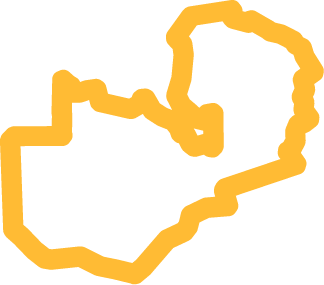Impact Network
Scaling Sounds: How to adapt phonics programs to new school contexts?
Overview
Location
Zambia
FNL Focus
Literacy
Grades
P1 - P2
Impact Network works in Zambia serving over 6,000 students across 40+ schools, covering early childhood through 7th grade. In 2021, we successfully piloted Read Smart Cinyanja, an innovative project to boost early literacy outcomes for 1st and 2nd grade students.
Read Smart is an explicit phonics program that employs a phased approach to teach sound-spelling relationships systematically. It was developed with the learnings of the science of reading, with a particular focus on students who lack exposure to print. It centers the use of phonetic charts, illustrating the mouth positions associated with each sound. Students progressively advance from accurate pronunciation and letter-sound connections to reading basic words and simple stories.
External assessments during USAID Let's Read Project revealed that students with two years of Read Smart surpassed counterparts across the province and country, with only 3% scoring below minimum proficiency, compared to 30% across Zambia. This program reaches 1,000 students across 8 schools, and we have received funding to expand to 40 additional schools in 2025. Additionally, we have secured funding to conduct an RCT evaluation in 2026 with American Institutes for Research. In 2023, we signed a groundbreaking new MoU with the government, laying the foundation for government teachers to implement our proven education model. Our expansion of this program in 2025 will be in partnership with the Ministry alongside government teachers.
Implementation research
In 2025, we are set to implement Read Smart in 40 community schools with government teachers. In 2026, we will be working with American Institutes for Research to conduct an RCT of Read Smart in an additional 15 government schools. Thus far, the program has only been implemented with Impact Network teachers, where we have much more management over the training and uptake rate of the program.
As we prepare for our RCT, our main challenges lie in effectively implementing Read Smart in a new setting and ensuring a strong uptake rate. We have seen the strong impact of this program and believe that if we can find a way to implement it effectively in government schools, we can work to scale the program impact to more students. While we have partnered with a few government schools in the past, this would be our first time implementing Read Smart outside of our direct school network. We want to implement different training methodologies, monitoring frequencies, and coaching strategies to see what drives uptake and buy-in from teachers, since this will directly impact student outcomes. Additionally, we want to better understand the challenges for government teachers implementing this program so that we can be clearer on the pathways to scale this project effectively.
By diversifying our implementation models and involving government schools, we aim to measure program effectiveness across different educational settings. This approach will provide valuable insights to refine our strategy for maximum impact, and preparing us for a strong RCT in 2026. We have seen firsthand that the Ministry of Education in Zambia values strong evidence of program effectiveness, and ultimately, we will need this evidence to ensure a lasting difference in the lives of students and communities.
Promise Makala, Head of Academics
“Read Smart is an explicit phonics program to boost literacy outcomes for grade 1 and grade 2 students. We are expanding into additional schools with government teachers. Our main challenge is effectively implementing Read Smart in a new setting and ensuring a strong uptake.
We want to better understand the challenges for government teachers implementing this program so that we can be clear around pathways to scale this effectively. The goal for this project is to implement different training methodologies, monitoring frequencies and coaching strategies to see what drives uptake and buy in from government teachers.”
Read Smart program
Related to Impact Network
Resource
BORA cards: 56 cards designed to guide your implementation research
Blog
Going Beyond "What Works" in Implementation Research: Understanding the "How" & "Why
External link
Read more about Impact Network on their website
Blog
uBoraBora Portfolio: Improved learning outcomes through targeted tweaks












